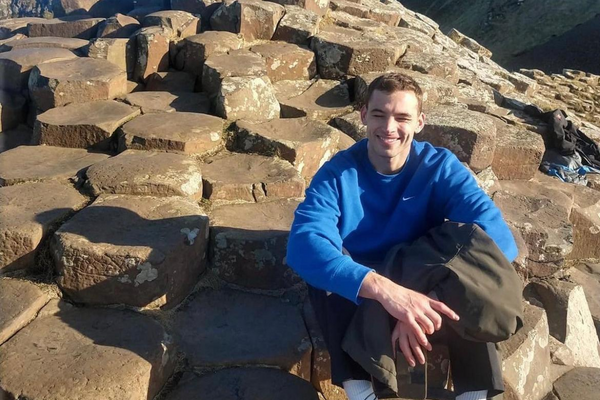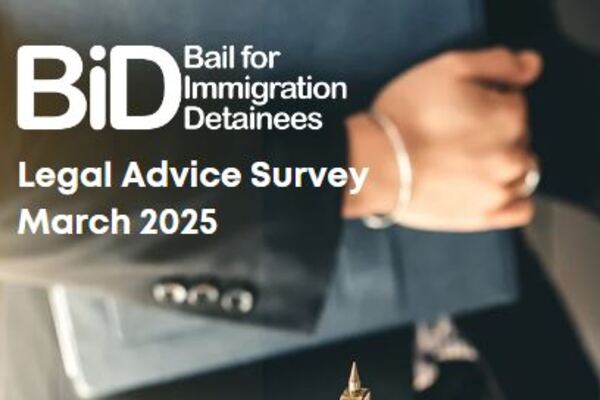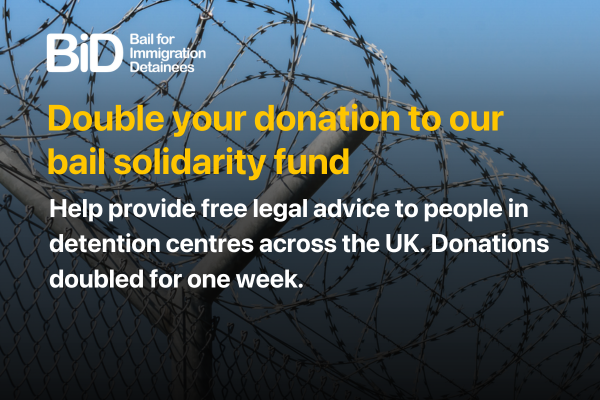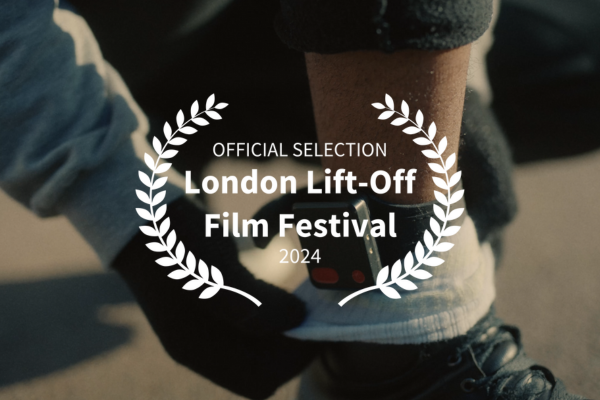To mark this year's pro bono week, we're celebrating the incredible force of barristers that donate their time to represent our clients in court for free. Together they donated 205 days last year. We sat down with one of them, Isaac Ricca-Richardson, to reflect on this experience.
Why do you volunteer your time to represent BID’s clients pro bono?
Because it is good to work with an organisation that is not afraid to say that it stands to end immigration detention altogether. Because BiD’s staff and volunteers are always knowledgeable, relentless, and kind. Because BID’s clients are often confused and afraid, having been taken away from their communities and prevented from easily accessing lawyers, and BID gives them a reason to hope that things might get better.
What strikes you most about the experiences of the clients you represent?
The worst thing about it all is how pointlessly cruel it is. How most of the time, once a person manages to fight through the nightmare of trying to find a representative and then get a bail hearing, they end up being released. If not, the first time they apply, then the next time, or the next time.
Even if detention was used just to ‘facilitate removal’, there would be countless arguments against it – that the state shouldn’t be able to take away people’s liberty for administrative convenience and that it ends up double punishing people who have already served criminal sentences are just two.
Most of the time, where detention is used, it is clear that removal won’t happen any time soon – which is supposedly the legal test for detention – yet it is used anyway to help politicians posture as “tough on illegal immigration”.
How do you feel people in detention are treated by the Home Office?
People in detention are treated with a complete lack of humanity.
I represented a teenage client last week who had received a short prison sentence for an offence that he says resulted from his experience of trafficking. He has a positive Reasonable Grounds decision, meaning it is accepted he might have been trafficked and is still awaiting a Conclusive Grounds decision to determine whether he was. Last year, those decisions took an average of 448 days – around one and a half years. Even after that decision is produced, the Home Office will have to decide his outstanding asylum claim. And yet he is languishing in detention, before he even turns 20.
Worst of all, the Home Office accept that there is no justification for detaining him – and once we got to the hearing it became clear they had accepted that internally for several months. He remained locked up solely because nobody had looked at his file, or the correct people hadn’t been notified he was suitable for release.
It is difficult to put into words the level of disregard you must have for a person’s basic humanity to treat them in that way.
What have you learned from representing BID’s clients?
I have learnt about the importance of ensuring everybody has proper access to legal representation and the courts. I have also learnt, from BID’s knowledgeable and determined staff and volunteers, more about detention law and policy every time I have taken on a case.
What do you feel the public needs to know about immigration detention?
The public ought to be told about how many detained people end up released back into the community rather than removed. They ought to be told that 95% of people released on bail comply with their conditions anyway. They ought to be told about how bad conditions in detention are, as anybody who has ever visited one can tell you. And they ought to be told more about the numbers who have serious mental health problems, either before they go in, or that develop while they are there.
BID relies on the generous support of pro bono barristers to represent our clients. Together they donated 205 days last year and we are incredibly grateful. To learn more about how you can support BID's clients pro bono head here on our website or by email [email protected].









